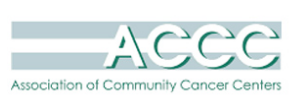Cancer Center in Under-Served Community Highlights Benefits of a Genetic Testing Program
Yuma Regional Medical Center Cancer Center has implemented a genetic cancer screening and testing for their patients through collaboration with Myriad Genetics, a molecular diagnostic testing company, according to a presentation by Erica Martinez, RN, OCN, at the Association of Community Cancer Centers’ 2019 National Oncology Conference. After partnering with Myriad Genetics, the cancer center saw a 4-fold increase in genetic testing of patients with cancer in the first 4 months, which led to a change in clinical management in 20% of those cases.

Yuma Regional Medical Center Cancer Center, which is in a medically under-served community, has implemented a genetic cancer screening and testing for their patients through collaboration with Myriad Genetics, a molecular diagnostic testing company, according to a presentation by Erica Martinez, RN, OCN, at the Association of Community Cancer Centers’ 2019 National Oncology Conference. After partnering with Myriad Genetics, the cancer center saw a 4-fold increase in genetic testing of patients with cancer in the first 4 months, which led to a change in clinical management in 20% of those cases.
“Genetic cancer screening is a modern and increasingly ubiquitous tool in the early recognition of individuals with familial or hereditary cancer syndromes,” Martinez, an oncology nurse navigator at the Yuma Regional Medical Center, said in her presentation. “Access to this powerful testing helps identify and thereby reduce disease burden, suffering and cost, in addition to being at the cutting edge of technology. Having such testing easily available in medically under-served regions is removing barriers to care on several levels, primarily financial, cultural, and geographical barriers.”
For the program, implementation meant that new patients were given a hereditary cancer quiz at their first appointment. If the patient was flagged as requiring further assessment, a blue laminated card was added to their chart and a genetic testing consult was ordered. If the patient required no further assessment, a white card was put in their chart.
During the patient’s next visit, they were set up with a tele-education appointment with a genetic counselor. This involved watching a short video on genetic and hereditary cancer screening followed by a call with a genetic counselor from Myriad Genetics. On the call, the counselor did a comprehensive hereditary assessment and then emailed that assessment to the medical assistants at the cancer center. If the patient needed genetic testing, they completed paperwork and were escorted to get blood work done.
In the 8 months before this program was implemented, 24 patients were referred for genetic testing. In the 4 months after implementation, 222 patients completed a hereditary cancer quiz and from there 108 patients were flagged as appropriate to move on to tele-education and genetic counseling. After this, 54 patients received genetic testing; the prevalence rate was 48%.
“This dramatic increase is a direct result of the implementation of this innovative approach to provide genetic cancer screening and education of our patients. It has impacted the clinical management of more than 20% of tested patients,” Martinez said.
At the 7-month mark, 76 genetic tests were ordered and 67 of them were completed and reported; 6 of those resulted in gene-positive tests and 10 high-risk negative tests. There was a clinical management change in about 24% of patients tested.
Martinez explained that there was no cost to patients or the cancer center to implement and use the tele-education program and genetic screening. Myriad Genetics even covered the telephone and tablet patients used for the tele-education and video. This was beneficial to the center as a majority of their patients are Hispanic, elderly, uninsured, low-income, or a combination, which Martinez addressed during her presentation.
“Prior to this subject initiative, there was limited genetic testing service in our community for our [patients with] cancer,” Martinez said. “Our patients were having to travel hundreds of miles out of town to receive genetic counseling and testing services and unfortunately that's just not feasible for most of our patients.”
The Yuma cancer center has since expanded the program to their obstetrics and gynecology clinic, and they are hoping to continue expanding to the breast imaging center and family medicine clinics and eventually to all patients that come in and also to family members of patients that test positive.
According to Martinez, “this model can be replicated by other programs to help provide genetic screening, not only in cancer centers, but also in other clinical settings as well…a similar program was also launched at our women's health clinic after the success at the cancer center.”
The only problem the program has seen so far is a decrease in testing in the last few months, which Martinez believes is due to staff turnover. They plan on re-educating the new staff and have ongoing training.
Reference:
Martinez E. Implementing Genetic Cancer Screening and Testing in a Medically-Underserved Community. Presented at: Association of Community Cancer Centers 2019 National Oncology Conference; October 30-November 1, 2019; Orlando, FL.